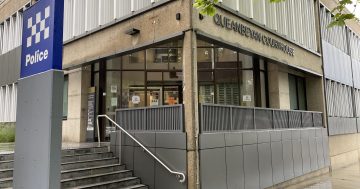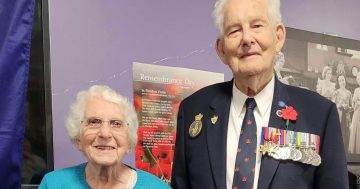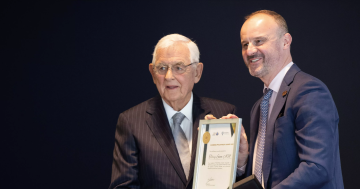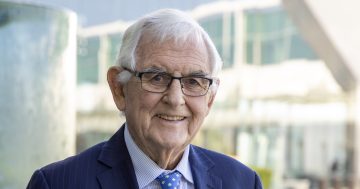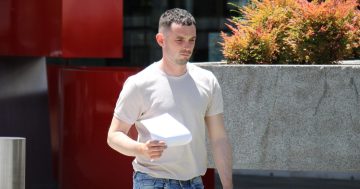
I had 30 years in the public sector and 15 years in the parliamentary sector and am occasionally given cause to reflect on some of the characters I met in those days.
With Simon Corbell’s retirement from this aspect of his life and career, he becomes the last Labor member to have experienced life in opposition. I remember it well.
It is really important for new members of a parliament to experience the lows of political life, to experience the sense of irrelevance, the sense of futility and the frustration of the destruction of a good idea just because you don’t have the numbers.
I sat with Simon on the so-called opposition front bench between 1998 and 2001. He had had only a year more experience than half the caucus but still carried himself with a self-assurance that belied his youth and his actual on-ground experience. Having that atmosphere when Jon Stanhope, Ted Quinlan and I joined the team of Simon, Wayne Berry and Bill Wood, proved to be significant in our growth towards taking government in 2001.
Even in those days, Simon had a vision, his mind seemed to be comfortable with big picture issues whereas I tended to concentrate on the immediacy of change. One small such issue where our thoughts coincided in a big vision delivered was our commitment to on-road cycle lanes and the promotion of cycling as an alternative to commuter travel.
Simon always had this vision of sustainable transport for buses, low emission cars and cycling to complement the encouragement of pedestrian activity.
Now this is not the sexiest of subjects, but without his drive and vision we would still be stuck in the past with the transport modality of the 1960s.
I look back and remember Simon’s fervour about the environment, about photovoltaic cell power, wind power and his willingness to discuss any alternative energy sourcing to reduce our carbon footprint, way before it was in vogue.
His reputation as an environmental warrior is well established and it is national if not international.
But we often don’t remember Simon’s work in health. He is regarded as one of the most effective health ministers since self-government. I worked for Terry Connolly when he was minister for health and know how well regarded in the sector Terry was. Simon enjoys that high regard. In my 30 years in the public sector, more than half of it was in health and my contacts are still strong so I speak with authority.
I remember after the 2004 election, I had a discussion with the Chief Minister about the distribution of portfolios. I said I was interested in a number of responsibilities but planning was not among them – nor was health. I thought I’d make a pretty good Attorney General since I had been responsible for police and corrections in the previous term.
The ACT can be well pleased that I didn’t get the A-G’s portfolio. Simon was far better placed to have this responsibility than I. For a non-lawyer, Simon had an immediate grasp of the intricacies of this sensitive portfolio and soon attracted the respect of the profession. Not an easy thing to do at all!
It was interesting to sit beside Simon and see how seamless he made the issues of planning and the environment meld into each other, and to show how neither could exist without paying due respect to the other. Someone concentrating on the detail as I tended to do, could not have done this. This is an aspect of Simon’s abilities that won’t get much airplay but should.
The Assembly, in fact any parliament in which politics plays too heavy a part, can be a dangerous place in which to function. Its tensions and personal attacks, its challenges to one’s ideas and principles, the nature of its inherent combative forum all tax the strength of any individual who inhabits those benches. And it extracts its toll!
Simon became a beacon for those who battled the inner battles with the black dog. His public outing of his own battles with the demons became a tent pole around which we could gather if we were experiencing those battles. Again, I speak from experience.
Simon Corbell is a well-rounded and significant parliamentarian whose contributions to this town should be chronicled and applauded. His humility should be copied by baby-members. His only failing as a politician, by his own admission, was that he “could never be a mongrel, Johno,” when we talked about the thrust and parrying of the personal politics. He was just not good at being a political thug. A factional warrior he wasn’t.
But he knew the parliamentary process, he knew standing orders backwards, he knew and embraced the purity and sanctity of parliamentary practice. And he was a very capable tactician indeed.
The Assembly will be the poorer when Simon leaves, but let us remember long afterwards his contribution to the vision of a magnificent city is built upon.
Baby politicians, take note of the career of Simon Corbell, take note of the vision and big picture view from Simon Corbell, take note of the humility and self-effacing way Simon Corbell conducted himself in his public life and emulate it.
Great innings from the bloke who was the second worse pollie cricketer after Gary Humphries!
(Photo credit: Facebook)













